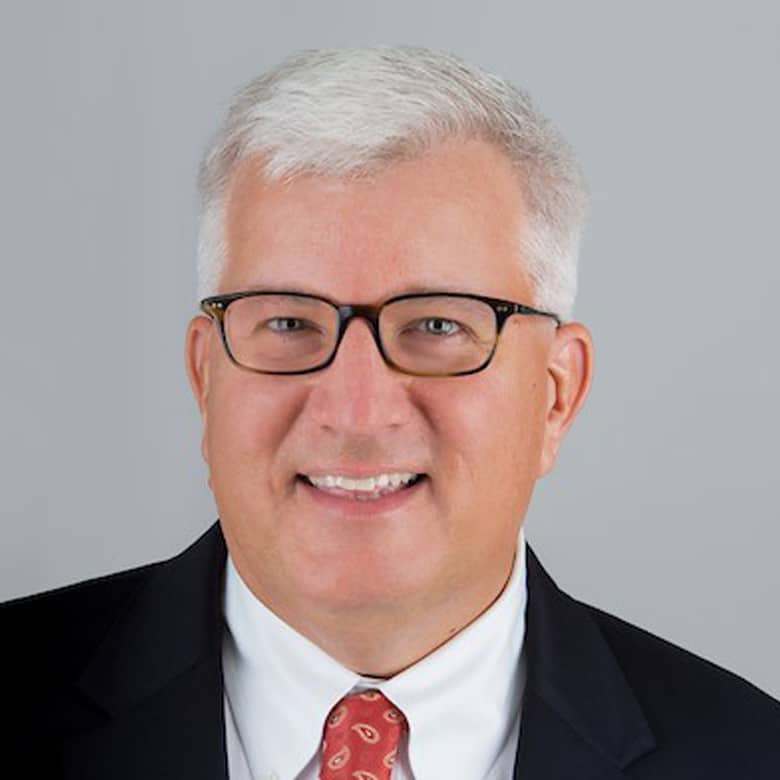What has your career path looked like? How did you initially become interested in the non-profit and philanthropic sectors?
I started my career in a non-profit (the German Marshall Fund) not because of an interest in non-profits, but because of my interest in working in a globally focused organization. Once I was at GMF for a while, I started to understand the space and appreciate the role that non-profits play in the world. So, I have focused my career in that space ever since.
At GMF, I worked for more than a decade in programs before moving into a senior management role. Since then, I have been a senior executive at the National Center for Family Philanthropy and the Elizabeth Dole Foundation. It has been fascinating to work in non-profits serving different sectors.
What has fulfilled you most throughout your career?
I have been fortunate to work both internally and as a consultant to a broad range of non-profits over the course of my career. The most interesting moments have been in supporting organizational growth and transition. I have helped organizations through leadership changes, I have aligned operational infrastructure to support significant growth, and I have created systems for remote and hybrid work (as so many of us did during the pandemic). Circumstances are always changing, and I have always found it rewarding to help organizations adapt to those changes.
Why did you choose to join Geneva Global’s Senior Advisory Group?
I have always respected and admired the work of Geneva Global. When Nathaniel Heller approached me with this opportunity, it was an easy decision. The opportunity to work with the amazing team, to work to support non-profits and philanthropists, and to engage with Geneva Global’s deep networks were all draws for me.
What challenges and opportunities are you seeing in philanthropy right now?
The opportunities are endless. Philanthropy has evolved so much in recent years. Many donors are more focused than ever on systems change and making long-term investments. With that mindset, so many paths are open to philanthropists. The biggest challenge is identifying the organizations capable of having the greatest impact. There are so many organizations out there doing amazing work that donors just don’t have on their radars.
What differences and similarities have you seen working domestically and internationally?
There are different approaches to identifying and solving problems. We have a longstanding and robust philanthropic sector in the United States. Internationally, I have done most of my work in Europe. Most European countries don’t look to philanthropy to address social issues – that tends to be a role of the government. That said, philanthropy is growing in Europe and all over the world. I think there is incredible opportunity for global philanthropists to shape the approaches to solving the world’s big problems.
What advice would you give to someone who wants to work in the non-profit or philanthropic sectors?
Most people seeking to work in these sectors have a set of issue areas that they are passionate about. Identifying the type of mission you want to support is probably pretty easy. What you should consider is how close you want to be working to the impact. Do you want to work in a direct service organization? Or for a coalition of organizations? You could take a step further back, and work for a foundation that supports the direct service work. And of course, there are philanthropy-supporting non-profits and consultants that provide resources to philanthropists. If you want to wake up every day and see the direct impact of your work on an individual or community, lean more towards direct service. If you want to focus on the broader infrastructure and systems that make the impact possible, you might prefer to work closer to the other end of the spectrum.
What are you reading right now?
I just read Relationships to Infinity: The Art and Science of Keeping in Touch by Jason Levin. Jason is a career coach, and the book provides a wealth of straightforward networking advice that is easily implementable, even for people who dread the idea of networking. I also recently read The Optimizer: Building and Leading a Team of Serial Innovators by John Saunders. It’s about providing opportunities for everyone in an organization to create and innovate, and leveraging the wisdom of everyone on your team to elevate your work.
Where do you get your news?
Living in the DC area, I usually start with the Washington Post. But I usually end up focusing mostly on the crossword puzzle.

